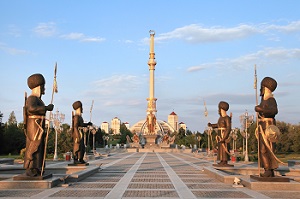Success tips when doing business in Turkmenistan in 2025
- At most shops in Turkmenistan, bargaining is expected. Showing emotion, leaving and coming back, and asking around until prices go down are all common behavior. Shop owners may even come find you if they are willing to give you a lower price than others;
- Because Turkmenistan companies are not as well-versed with international business and Western law practices, we encourage our Clients to consistently use and sign contracts of service while doing business in Turkmenistan;
- Hiring reliable and experienced workers that speak fluent English is difficult, especially with governmental restrictions on the number of foreign workers allowed in companies. During Turkmenistan company formation, Healy Consultants can assist our Clients in its human resource needs by placing advertisements in the major newspapers like the Times of Central Asia;
- As Islam is the predominant religion in Turkmenistan, the holy month of Ramadan is observed, with large celebrations marking the end of Ramadan. While setting up a business in Turkmenistan, be prepared for many Turkmen businesses to be closed or for normal operations to slow down for several days;
- When establishing a company in Turkmenistan, it is important to find out what Turkmen registrations and licenses apply to your firm. This can be a complex area, as local, state, territory, and federal governments handle registration and licensing for various aspects of your business.
Interesting facts about Turkmenistan?
- Turkmenistan has one of the world’s largest deserts, called the Karakum, which covers 80% of the country;
- As of 2008, Turkmenistan can proudly state that they have a 100% adult literacy rate;
- As gas and electricity are free, some citizens choose to keep their stove burning all of the time, to save money on matches;
- Ashgabat, the capital of Turkmenistan is home to a 133-meter flagpole, one of the world’s tallest;
- Turkmenistan had previously attempted to create a ski resort in the Turkmenistan mountains, which have no snow.

